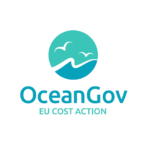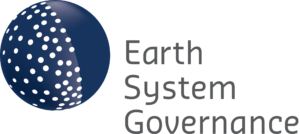Conflict & Diplomacy
With rich resources and strategic value, the oceans have long been an arena of conflict and of diplomacy among nation-states. Though less wide-spread than in past years, disputes over claims to Exclusive Economic Zones and Continental Shelves continue in some areas. Furthermore, as uses of the oceans expand, the need for collaborative management of Regional Seas increases as well. States must cooperate to reduce the negative impacts of issues ranging from pollution to overfishing to increased shipping, marine mining, and off-shore energy production. Piracy and international organized crime complicate oceans governance even further and often require a coordinated response via groups like INTERPOL or CITES. Given the scope of these issues, there are many overlaps with other clusters and we expect that members will have a wide array of topical interests. The uniting force is a focus on the international aspects of oceans governance, whether carried out through states or transnational actors.
If you’d like to join the cluster, please click here to become a member. This will allow you to post information on the page and give you the opportunity to receive information and updates via the Oceans Taskforce listserve.
While we do not have funding ourselves, we do hope to foster joint projects via Working Groups, which would bring together cluster members to write grant proposals, put together collected volumes/special issues, or develop webinars, workshops, syllabi, or similar products. All projects should focus on the cluster topic and fit within the ESG Science Plan (http://www.earthsystemgovernance.org/research-agenda/). Working group members should come from more than one institution and should have sufficient expertise to accomplish project goals. Forming a working group can help you to expand your professional network. It will also provide mentoring from the cluster leaders and access to logistical support like web-conferencing from ESG headquarters. To submit a Working Group proposal, please fill out this form and send it to the cluster leader(s) listed below. If you’d like to propose a Working Group that fits in more than one cluster, please send it to the leaders of each cluster in a single e-mail. Scroll down for descriptions of active Working Groups
Cluster Leaders:
DG Webster
Dartmouth, USA
d.g.webster@dartmouth.edu
Rachel Tiller
SINTEF, Norway
racheltiller
Contents
Active Working Groups
Uncertainty at the Tuna RFMOs
Co-Leads: Mark Axelrod (Michigan State) and D.G. Webster (Dartmouth)
Products: A workshop and a joint paper
Description: This project began before the taskforce was created. In fact, it was one of several projects that catalyzed our decision to foster community around the issues of oceans governance. The co-leads secured funding from the International Studies Association for a workshop on Uncertainty in International Regimes in the winter of 2017. Prof. Axelrod also received some support from Michigan State University to undertake data collection from the reports of the 5 regional fisheries management organizations dealing with tunas and other highly migratory species. The main research question for this working group is, “under what conditions does scientific uncertainty lead policy-makers to reject or adhere to scientific advice?” Preliminary results reveal an interesting interaction between uncertainty and price: for low-priced stocks, increasing uncertainty surprisingly correlates with more adherence to scientific advice, but total uncertainty is correlated with less adherence; in contrast, for higher-priced stocks, the reverse is true. We’ve also looked at change in scientific uncertainty and can show that, on average, reported uncertainty has decreased over time. This is not correlated with the likelihood of scientists making any recommendation to act, but does affect the type of management recommendation.
Participants: Oran Young, Peter Haas, Ron Mitchell, Leandra Gonçalves, Sikina Jinnah, David Kerstetter, James Bence, Michael Jones, Nataliya Stranadko
Co-Clusters: Science, Risk, & Uncertainty, Fisheries
Closed to new participants.
- Aquaculture
- Call for paper abstracts on Earth System Governance for Blue Growth (2018 Utrecht ESG conference)
- European Parliament Resolution on Ocean Governance (16/01/18)
- Capacity building workshop for EU early career marine researchers
- Earth System Governance Task Force on Ocean Governance
- Biodiversity (incl. beyond national jurisdiction)
- Ocean Climate Geoengineering Roundtable
- 71 countries are negotiating a new biodiversity treaty. Here’s what you need to know.
- Ocean science and policy
- Call for abstracts for an ISA panel on Ocean Governance issues
- Article on the BBNJ treaty and Marine Litter
- Budget earmarks $500m to mitigate Great Barrier Reef climate change
- Great Barrier Reef saw huge losses from 2016 heatwave
- Bright lights shining on the horizon for the Brazilian Ocean Economy?
- Professorship Opening in Marine Governance at Oldenburg University, Germany
- Small-Scale Fisheries under Climate Change in the Pacific Islands Region
- Call for paper abstracts on Earth System Governance for Blue Growth (2018 Utrecht ESG conference)
- European Parliament Resolution on Ocean Governance (16/01/18)
- Capacity building workshop for EU early career marine researchers
- Vacancy: Research Associate – Partnership for Regional Ocean Governance (PROG)
- Call for Papers for Multi-Stakeholder Collaboration in Regional Seas Environmental Cooperation Panel at ECPR 2018
- Ocean governance: strengthening the legal framework for conservation of marine biological diversity beyond areas of national jurisdiction
- Earth System Governance Task Force on Ocean Governance
- Blue Economy
- Call for Panels and Papers: “Ocean And Polar Politics” (EISA)
- 2nd Part of the 24th Session of the International Seabed Authority
- Ocean science and policy
- Great Barrier Reef saw huge losses from 2016 heatwave
- Bright lights shining on the horizon for the Brazilian Ocean Economy?
- Professorship Opening in Marine Governance at Oldenburg University, Germany
- Small-Scale Fisheries under Climate Change in the Pacific Islands Region
- Call for paper abstracts on Earth System Governance for Blue Growth (2018 Utrecht ESG conference)
- European Parliament Resolution on Ocean Governance (16/01/18)
- Capacity building workshop for EU early career marine researchers
- Green Shipping Partnership
- Earth System Governance Task Force on Ocean Governance
- Climate Change
- Ocean Climate Geoengineering Roundtable
- SOLAS Science & Society
- Call for abstracts for an ISA panel on Ocean Governance issues
- Budget earmarks $500m to mitigate Great Barrier Reef climate change
- Adapting Fisheries and Their Management to Climate Change
- Great Barrier Reef saw huge losses from 2016 heatwave
- Bright lights shining on the horizon for the Brazilian Ocean Economy?
- Adaptive Capacity of Small-scale Fisheries: New Publication
- Small-Scale Fisheries under Climate Change in the Pacific Islands Region
- Call for paper abstracts on Earth System Governance for Blue Growth (2018 Utrecht ESG conference)
- European Parliament Resolution on Ocean Governance (16/01/18)
- Earth System Governance Task Force on Ocean Governance
- Coastal Communities
- COST OceanGov – Land-Sea Interactions Training School in Constanta
- Call for abstracts for an ISA panel on Ocean Governance issues
- Budget earmarks $500m to mitigate Great Barrier Reef climate change
- Great Barrier Reef saw huge losses from 2016 heatwave
- Bright lights shining on the horizon for the Brazilian Ocean Economy?
- Adaptive Capacity of Small-scale Fisheries: New Publication
- Small-Scale Fisheries under Climate Change in the Pacific Islands Region
- Call for paper abstracts on Earth System Governance for Blue Growth (2018 Utrecht ESG conference)
- European Parliament Resolution on Ocean Governance (16/01/18)
- Capacity building workshop for EU early career marine researchers
- Earth System Governance Task Force on Ocean Governance
- Conflict & Diplomacy
- Call for Panels and Papers: “Ocean And Polar Politics” (EISA)
- Professorship Opening in Marine Governance at Oldenburg University, Germany
- Call for paper abstracts on Earth System Governance for Blue Growth (2018 Utrecht ESG conference)
- European Parliament Resolution on Ocean Governance (16/01/18)
- Call for Papers for Multi-Stakeholder Collaboration in Regional Seas Environmental Cooperation Panel at ECPR 2018
- Earth System Governance Task Force on Ocean Governance
- Energy
- Call for Panels and Papers: “Ocean And Polar Politics” (EISA)
- Professorship Opening in Marine Governance at Oldenburg University, Germany
- Call for paper abstracts on Earth System Governance for Blue Growth (2018 Utrecht ESG conference)
- European Parliament Resolution on Ocean Governance (16/01/18)
- Earth System Governance Task Force on Ocean Governance
- Fisheries
- Call for Panels and Papers: “Ocean And Polar Politics” (EISA)
- Call for abstracts for an ISA panel on Ocean Governance issues
- Adapting Fisheries and Their Management to Climate Change
- Bright lights shining on the horizon for the Brazilian Ocean Economy?
- Professorship Opening in Marine Governance at Oldenburg University, Germany
- Adaptive Capacity of Small-scale Fisheries: New Publication
- Small-Scale Fisheries under Climate Change in the Pacific Islands Region
- Call for paper abstracts on Earth System Governance for Blue Growth (2018 Utrecht ESG conference)
- European Parliament Resolution on Ocean Governance (16/01/18)
- Capacity building workshop for EU early career marine researchers
- Beyond the Tragedy in Global Fisheries
- Earth System Governance Task Force on Ocean Governance
- Marine Mining
- 2nd Part of the 24th Session of the International Seabed Authority
- Professorship Opening in Marine Governance at Oldenburg University, Germany
- Call for paper abstracts on Earth System Governance for Blue Growth (2018 Utrecht ESG conference)
- European Parliament Resolution on Ocean Governance (16/01/18)
- Vacancy: Research Associate – Partnership for Regional Ocean Governance (PROG)
- Earth System Governance Task Force on Ocean Governance
- Ocean Law
- Call for Panels and Papers: “Ocean And Polar Politics” (EISA)
- 2nd Part of the 24th Session of the International Seabed Authority
- Call for abstracts for an ISA panel on Ocean Governance issues
- Bright lights shining on the horizon for the Brazilian Ocean Economy?
- Professorship Opening in Marine Governance at Oldenburg University, Germany
- Small-Scale Fisheries under Climate Change in the Pacific Islands Region
- Call for paper abstracts on Earth System Governance for Blue Growth (2018 Utrecht ESG conference)
- European Parliament Resolution on Ocean Governance (16/01/18)
- Call for Papers for Multi-Stakeholder Collaboration in Regional Seas Environmental Cooperation Panel at ECPR 2018
- Call for authors for an edited volume on a Sympathetic Critique of the Law of the Sea
- Earth System Governance Task Force on Ocean Governance
- Polar Oceans
- Call for Panels and Papers: “Ocean And Polar Politics” (EISA)
- Professorship Opening in Marine Governance at Oldenburg University, Germany
- Call for paper abstracts on Earth System Governance for Blue Growth (2018 Utrecht ESG conference)
- European Parliament Resolution on Ocean Governance (16/01/18)
- Capacity building workshop for EU early career marine researchers
- Earth System Governance Task Force on Ocean Governance
- Pollution (incl. plastics)
- Call for abstracts for an ISA panel on Ocean Governance issues
- Article on the BBNJ treaty and Marine Litter
- Call for paper abstracts on Earth System Governance for Blue Growth (2018 Utrecht ESG conference)
- European Parliament Resolution on Ocean Governance (16/01/18)
- UNEA-3
- Earth System Governance Task Force on Ocean Governance
- Recreation and Tourism
- Great Barrier Reef saw huge losses from 2016 heatwave
- Small-Scale Fisheries under Climate Change in the Pacific Islands Region
- Call for paper abstracts on Earth System Governance for Blue Growth (2018 Utrecht ESG conference)
- European Parliament Resolution on Ocean Governance (16/01/18)
- Earth System Governance Task Force on Ocean Governance
- Science & Uncertainty
- Ocean Climate Geoengineering Roundtable
- SOLAS Science & Society
- Ocean science and policy
- Survey on influences of global environmental assessments on sustainable ocean development
- Budget earmarks $500m to mitigate Great Barrier Reef climate change
- Great Barrier Reef saw huge losses from 2016 heatwave
- Small-Scale Fisheries under Climate Change in the Pacific Islands Region
- Call for paper abstracts on Earth System Governance for Blue Growth (2018 Utrecht ESG conference)
- European Parliament Resolution on Ocean Governance (16/01/18)
- Capacity building workshop for EU early career marine researchers
- Global Ocean Science Report – The Current Status of Ocean Science around the World
- Earth System Governance Task Force on Ocean Governance
- Shipping
- Call for abstracts for an ISA panel on Ocean Governance issues
- Call for paper abstracts on Earth System Governance for Blue Growth (2018 Utrecht ESG conference)
- European Parliament Resolution on Ocean Governance (16/01/18)
- Green Shipping Partnership
- Earth System Governance Task Force on Ocean Governance
- Space & Ecosystem Based Management (incl. MPAs)
- Great Barrier Reef saw huge losses from 2016 heatwave
- Professorship Opening in Marine Governance at Oldenburg University, Germany
- Small-Scale Fisheries under Climate Change in the Pacific Islands Region
- Call for paper abstracts on Earth System Governance for Blue Growth (2018 Utrecht ESG conference)
- European Parliament Resolution on Ocean Governance (16/01/18)
- Capacity building workshop for EU early career marine researchers
- Call for Papers for Multi-Stakeholder Collaboration in Regional Seas Environmental Cooperation Panel at ECPR 2018
- Earth System Governance Task Force on Ocean Governance
- Sustainable Development Goals
- Ocean science and policy
- Survey on influences of global environmental assessments on sustainable ocean development
- Article on the BBNJ treaty and Marine Litter
- Budget earmarks $500m to mitigate Great Barrier Reef climate change
- Adapting Fisheries and Their Management to Climate Change
- Professorship Opening in Marine Governance at Oldenburg University, Germany
- Adaptive Capacity of Small-scale Fisheries: New Publication
- Small-Scale Fisheries under Climate Change in the Pacific Islands Region
- Call for paper abstracts on Earth System Governance for Blue Growth (2018 Utrecht ESG conference)
- European Parliament Resolution on Ocean Governance (16/01/18)
- Capacity building workshop for EU early career marine researchers
- Vacancy: Research Associate – Partnership for Regional Ocean Governance (PROG)
- Global Ocean Science Report – The Current Status of Ocean Science around the World
- Earth System Governance Task Force on Ocean Governance
- Teaching & Mentorship
- Professorship Opening in Marine Governance at Oldenburg University, Germany
- Call for paper abstracts on Earth System Governance for Blue Growth (2018 Utrecht ESG conference)
- European Parliament Resolution on Ocean Governance (16/01/18)
- Capacity building workshop for EU early career marine researchers
- Earth System Governance Task Force on Ocean Governance
- Theory (based on the ESG Science Plan)
- Call for paper abstracts on Earth System Governance for Blue Growth (2018 Utrecht ESG conference)
- European Parliament Resolution on Ocean Governance (16/01/18)
- Call for Papers for Multi-Stakeholder Collaboration in Regional Seas Environmental Cooperation Panel at ECPR 2018
- Earth System Governance Task Force on Ocean Governance
- Trade & Globalization
- Call for Panels and Papers: “Ocean And Polar Politics” (EISA)
- Small-Scale Fisheries under Climate Change in the Pacific Islands Region
- Call for paper abstracts on Earth System Governance for Blue Growth (2018 Utrecht ESG conference)
- European Parliament Resolution on Ocean Governance (16/01/18)
- Earth System Governance Task Force on Ocean Governance
- Uncategorized
- Call for Papers: S.O.S – Science for Ocean Sustainability in the ESG Journal
- Future Earth OCEAN Knowledge Action Network & ECR NoN
- Job Vacancy for Aquaculture Sector Specialist
- New paper in PNAS: Beyond Panaceas in Fisheries Governance (Focus on ITQs)
- ANNOUNCEMENT: São Paulo School of Advanced Science on Ocean Interdisciplinary Research and Governance
- Call for paper abstracts on Earth System Governance for Blue Growth (2018 Utrecht ESG conference)
- A Regular Process for Global Reporting and Assessment of the State of the Marine Environment



Recent Comments